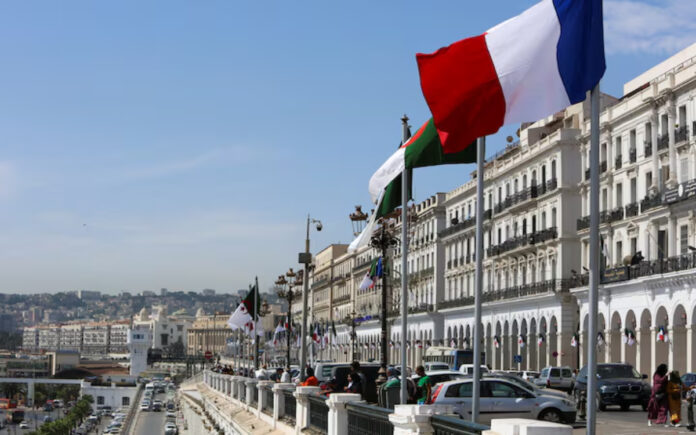Paris: France and Algeria have reopened diplomatic dialogue following months of escalating tensions that significantly strained Paris’ economic interests in its former colony. The renewed efforts to reestablish cooperation come after mutual accusations of humiliation, a sharp downturn in bilateral trade, and a freeze in crucial security coordination.
Although Franco-Algerian relations have long been marked by historical complexities, ties deteriorated markedly last July when French President Emmanuel Macron endorsed Morocco’s autonomy plan for Western Sahara—an act that deeply angered Algiers. Algerian officials viewed the move as a betrayal of their staunch support for Western Sahara’s independence, prompting diplomatic pushback.
Since then, French officials claim Algeria has pursued a deliberate policy of reducing France’s economic footprint in the country. Bilateral trade has declined by as much as 30% since the summer, severely affecting sectors such as agriculture and infrastructure investment.
The breakdown in relations has wide-reaching implications. France and Algeria share extensive economic, security, and migratory ties, with around 10% of France’s 68 million citizens having Algerian heritage. “It is in the interest of France and the French people to be able to get results in terms of migration, judicial, security and economic cooperation,” French Foreign Minister Jean-Noël Barrot told lawmakers on April 1.
Barrot is set to meet officials in Algiers for a day of high-level discussions. His visit follows a conciliatory phone call on March 31 between Macron and Algerian President Abdelmadjid Tebboune, during which both sides agreed on a broad roadmap to de-escalate tensions and restore bilateral cooperation.
However, French businesses continue to face significant hurdles in Algeria. Officials allege that Algiers has imposed bureaucratic delays and withheld new financial authorizations for French companies. The impact has been especially visible in wheat exports.
Traders say that Algeria’s state grains agency, OAIC, has unofficially excluded French wheat from its tenders since October, despite public claims of equal treatment. Only one shipment—30,000 tons—of French wheat has reached Algeria during the 2024/25 season, a stark contrast to the millions of tons exported in prior years.
“People are talking about it but they’re waiting to see what impact this has on the ground,” said a French grain trader. “We could definitely do with another buyer for our wheat.”
Beyond economic matters, diplomatic strain has also disrupted key security cooperation, including joint efforts to combat Islamist militancy in the Sahel and Maghreb regions. The situation worsened following the arrest and sentencing of 80-year-old Franco-Algerian author Boualem Sansal in November. His five-year prison sentence shocked French diplomats, who are now quietly hoping for a presidential pardon.
Immigration has further fueled the discord, especially amid Macron’s domestic push to tighten border controls. French Interior Minister Bruno Retailleau recently proposed revisiting the 1968 bilateral agreement that eases Algerian migration to France. His remarks followed Algiers’ refusal to repatriate nationals subject to deportation orders under France’s “OQTF” (obligation to leave French territory) program.
Underlying these tensions is the unresolved trauma of the 1954–1962 Algerian War of Independence. France’s colonial legacy—marked by over 400,000 Algerian deaths and the controversial role of the “harkis,” Muslim Algerians who fought for France—continues to shadow bilateral relations. Macron has called for greater transparency about France’s colonial past but has also accused Algeria’s ruling elite of fostering “a hatred of France” through historical revisionism.
Also Read | Social Security at Risk? Americans March Against Trump’s Restructuring Plan
“President Macron recognised the Moroccan character of Western Sahara, a move Algeria views as a betrayal. With no sign Macron will ever reverse this decision, the Algerians will not be making it easy for French firms to do new business in their country,” said Jalel Harchaoui, associate fellow at the Royal United Services Institute.
While dialogue has resumed, the path forward remains uncertain—fraught with historical grievances, strategic disputes, and economic mistrust. Much now hinges on whether this latest diplomatic outreach can translate into tangible improvements in trade, security, and cooperation.



